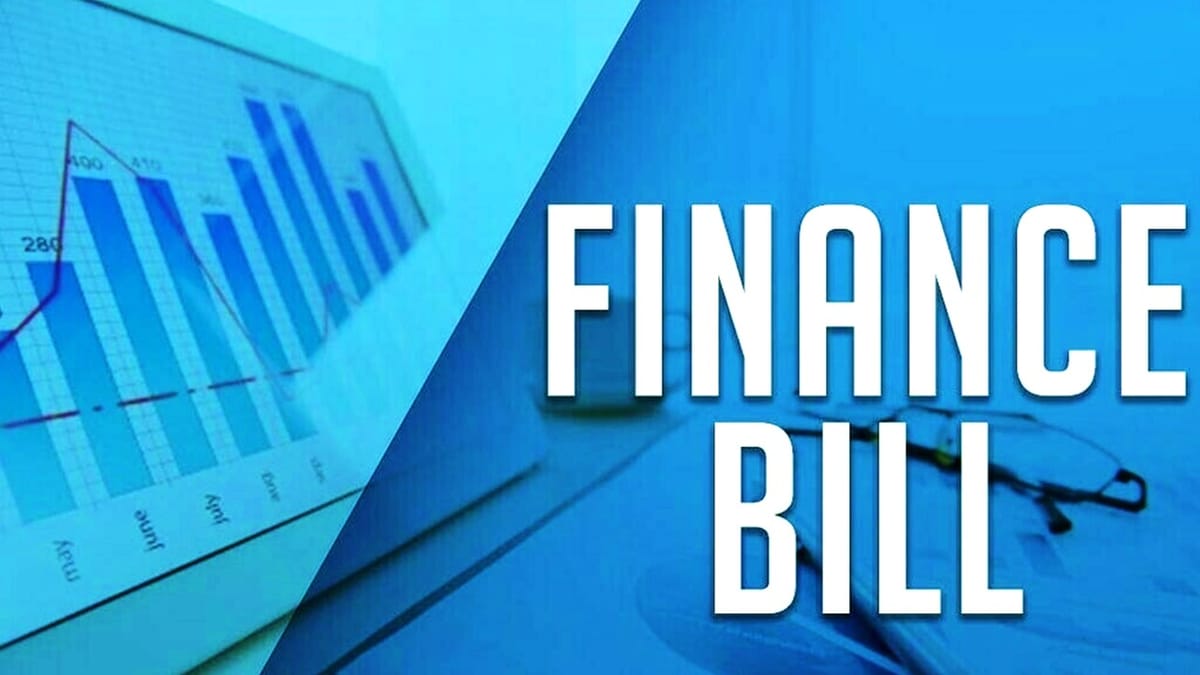The Lok Sabha passed the Finance Bill, 2023 with some amendments. A JPC enquiry into the Adani Group issue was demanded by opposition MPs when Union Finance Minister Nirmala Sitharaman introduced “The Finance Bill, 2023” in the lower house.
Reetu | Mar 24, 2023 |

Summary of Amendments moved to Finance Bill, 2023
This article has been written by CA Ved Jain. Link of his Twitter handle @vedjainca.
The Lok Sabha passed the Finance Bill, 2023 with some amendments. A JPC enquiry into the Adani Group issue was demanded by opposition MPs when Union Finance Minister Nirmala Sitharaman introduced “The Finance Bill, 2023” in the lower house.
Amendments are as follows:
1. Marginal relief: It has been proposed to provide marginal relief for taxpayers adopting new tax regime and having income exceeding Rs 7.00 lakhs. As per the Finance Bill, 2023, it was proposed that there would be no requirement to pay tax under the new regime in case the income does not exceed 7 lakh. However, there was no marginal relief prescribed with the implication that the once the income exceeds Rs. 7 lakh (say Rs. 7.05 lakh), the requirement to pay tax would have triggered and the same could have resulted in the person falling within the income range of 7,00,001 to 7,29,000 to be worse of than the person having income of Rs. 7 lakh. To remove this anomaly, marginal relief has now been proposed to be prescribed which would mean that the tax payable shall not exceed the income exceeding Rs. 7 lakh. This would bring such individuals falling within the income range of 7,00,001 to 7,29,000 at par with the person having income of Rs. 7 lakh.
2. Capital gain in respect of debt funds deemed to be STCG: Capital gain arising from debt based mutual funds (where investment in equity shares of domestic companies is not more than 35% of total proceeds of the mutual fund) acquired on or after 01.04.2023 to be deemed to be short term capital gain. The implication will be that the lower rate of 20% which is applicable in respect of LTCG shall not be applicable and such gains shall be taxable as per normal slab rate. Further, no benefit of indexation shall be available as well. Thus, pure debt fund will lose its attraction. However, this amendment shall only be applicable in respect of investments made post 01.04.2023 and there shall be no impact on investment made on or before 31.03.2023.
3. Tax on Royalty/ FTS rate under section 115A increased to 20% (from 10%): This will impact non-residents of the countries with whom India doesn’t have treaty since tax rate on such income is by and large 10%. So now treaty will become more relevant. Non-residents of countries with whom India doesn’t have tax treaty will now be required to pay higher rate of 20% on income from Royalty and FTS.
4. TCS for LRS: It has been proposed that TCS under section 206C(1G) to be collected in case of remittance under LRS even if remittance is not made out of India. Earlier, TCS was collectible only if LRS is made out of India.
5. TCS rate in absence of PAN restricted to 20%: Under section 206CC, in absence of PAN, TCS is collectible at rate of 5% or twice the rate specified in the relevant provision. It has been proposed to restrict the higher rate of TCS collectible at 20%. This amendment has been proposed w.e.f 01.07.2023.
6. TCS rate in case non-filer of return restricted to 20%: Under section 206CCA, in case of non-filer of return, TCS is collectible at rate of 5% or twice the rate specified in the relevant provision. It has been proposed to restrict the higher rate of TCS collectible at 20%. This amendment has again been proposed w.e.f 01.07.2023.
7. Changes to incentivize IFSC
(i) No surcharge and cess on income earned by GIFT Category Ill from securities under section 115A(1)(a).
(ii) Provision for tax neutral reallocation of any investment vehicle in which ADIA is sole direct or indirect shareholder/ unitholder to GIFT City introduced; power to notify any other funds for tax neutral reallocation to GIFT City added (section 4 7(viiad);.
(iii) Dividend distributions from IFSC un it to be taxable at 10% (as against 20%).
(iv) Interest income on borrowing by foreign company from long-term bond or rupee denominated bond listed on IFSC stock exchange taxable @9%.
8. Changes in relation InvITs / REITs (“Business Trust”):
(i) SPV not required to withhold on payment of interest on debentures.
(ii) Exemption to sovereign wealth funds / pension funds for debt repayment from Business Trust introduced [section (10(23FE)].
(iii) Cost of unit holders reduced to the extent of distributions in form of debt repayment (unless such distributions are taxed as IOS); Investors in Business Trust pay 10% long-term capital gains tax on exit and don’t get benefit of full cost.
(iv) No tax under IOS until distribution in form of debt repayment are upto amount at which units of Business Trust issued.
In case of any Doubt regarding Membership you can mail us at contact@studycafe.in
Join Studycafe's WhatsApp Group or Telegram Channel for Latest Updates on Government Job, Sarkari Naukri, Private Jobs, Income Tax, GST, Companies Act, Judgements and CA, CS, ICWA, and MUCH MORE!"